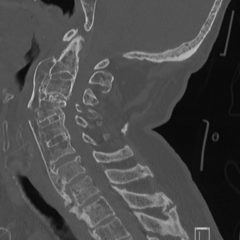Status Asthmaticus
ABSTRACT:
Audience:
Emergency medicine residents, internal medicine residents, medical students
Introduction:
Asthma affects 4%-5% of the population in the United States, and accounts for approximately 2 million emergency department visits, 484,000 hospitalizations, and >4,000 deaths per year. Thus, it is important for the emergency physician to be able to quickly identify and provide the correct management for a patient presenting with an acute asthma exacerbation.
Educational Objectives:
At the end of this case, the learners should be able to diagnose an asthma exacerbation, provide the appropriate medications, determine when intubation is necessary, and describe the general principles of ventilator management in an asthmatic patient.
Educational Methods:
This case was written to be run as a high-fidelity simulation. However, it may also be run as a moderate- or low-fidelity simulation, or as an oral boards case.
Research Methods:
The educational content was evaluated by the learners immediately after completion and debriefing of the scenario. The efficacy of the content was assessed by oral feedback.
Results:
The overall feedback was positive, and residents found it to be very useful to run through the whole management algorithm of a patient presenting in extremis due to status asthmaticus.
Discussion:
Overall, the educational content of this case was effective. The PGY-1 residents who were at the end of their first year of residency found it to be particularly helpful in the preparation for their PGY-2 year, which is the time that they become responsible for managing all of the high-acuity ambulance runs that enter the emergency department. By implementing this case, the authors learned that the case can easily lend itself to a thorough and high-yield debriefing session for learners of all levels. For example, the approach to a critically-ill patient may be discussed with medical students, while teaching the medical management of status asthmaticus and the nuances of ventilator management may be more useful for junior and senior residents.
Topics:
Status asthmaticus, respiratory failure, ventilator management.

